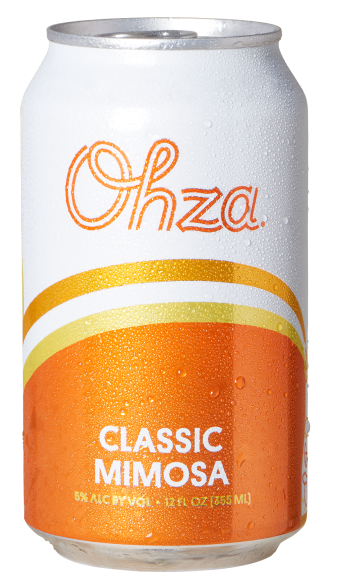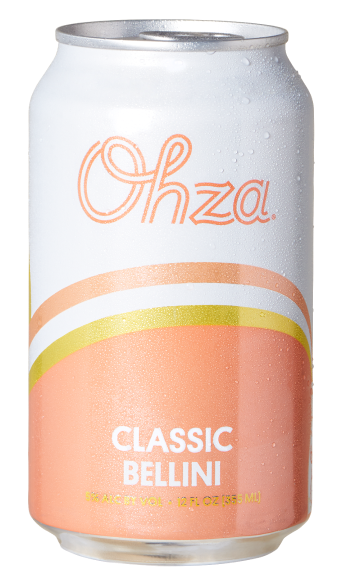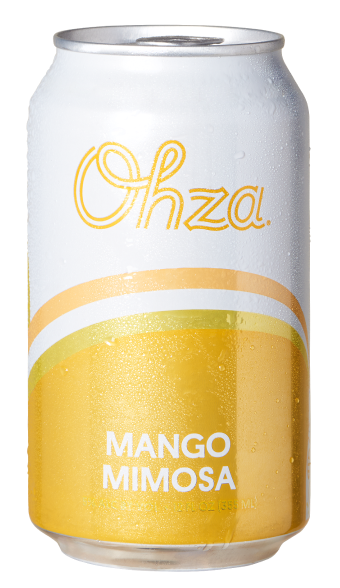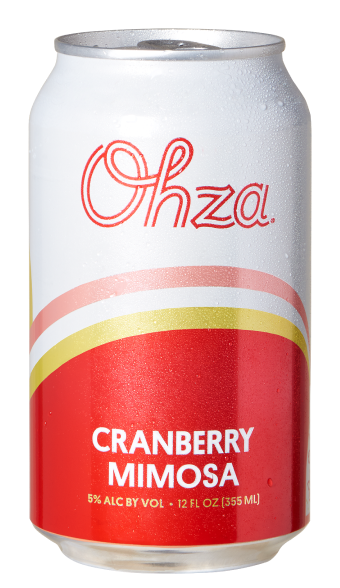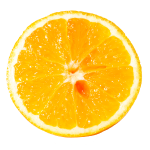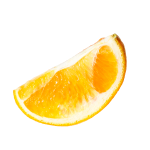How To Make an Antipasto Platter: The Ultimate Guide

We all love a good charcuterie board for any celebrations that come our way. But if you’re tired of the same old options, maybe it's time to switch things up. One of our favorite ways to do this is by making an antipasto platter. An antipasto platter is an Italian spin on the beloved charcuterie board.
The word antipasto is derived from the Latin root, anti, which means before, and pastus, which means meal. Antipasto is generally a type of appetizer enjoyed before the main course.
Antipasto is an Italian appetizer that generally consists of olives, cheeses, anchovies, and various meats. Making an antipasto platter doesn’t have to be a difficult task. It’s easy for anyone, Italian or not, to whip one of these up for your next celebration.
No matter how you choose to enjoy your antipasto, it will be a perfect addition to any Italian-inspired meal—not to mention that it goes perfectly with a fresh can of Ohza. Here’s how it’s done.
How To Arrange Your Antipasto Platter
When it comes to your antipasto platter, it’s important to know how to arrange it properly. The key to using it successfully comes in preparing everything before the event. Whether you use fresh ingredients or store-bought is totally up to you, but it’s important to have all that decided beforehand.
You could arrange your antipasto platter similar to a charcuterie, using a large cutting board to arrange everything. This is a good idea if you let guests serve themselves or use your antipasto platter in a large group setting. Using a big cutting board also helps add variety and color to your plate since you have a larger canvas.
Choosing the Items for the Antipasto Platter
Now that you have a visual in mind, it’s time for the fun part: adding all the ingredients to your board. Antipasto platters generally consist of foods like Italian meats and cheeses. When you are narrowing down your flavors of different items to put on your antipasto platter, it’s wise to stick to these Italian flavors.
Here are our recommendations for items to put on your tasty antipasto platter.
1. Cheese
When narrowing down your cheese for your antipasto platter, it can be difficult when there are so many delicious cheeses to choose from.
We recommend using a variety of cheeses that vary in texture and flavor. Use a mix of hard and soft cheeses to add to the texture of your antipasto platter.
Our recommendations include fresh mozzarella, sharp cheddar, provolone, blue cheese, or gorgonzola.
2. Italian Meats
The next part of the antipasto platter is the star of the show: the Italian meats. Most of the meats found on an antipasto platter are pre-sliced and cured. It’s important to cut the meat thin enough so your guests can enjoy it with other items on the platter.
Our recommendations for meat on your antipasto platter include salami, prosciutto, sliced capicola, mortadella, or pepperoni.
3. The Finishing Touches
To top off your antipasto platter, you need some final touches like pickled vegetables and fresh greens. Adding these details helps add some color to your antipasto platter.
Our recommendations for the vegetables include stuffed olives, sweet pickles, roasted bell peppers, sun-dried tomatoes, and pickled onions. Another great thing to add is fresh sprigs of herbs like rosemary, thyme, and basil.
Presenting Your Antipasto Platter
With antipasto platters, aesthetics are everything. It’s important to know how best to present your platter so that every element has its chance to shine.
One of the best ways to do this is by being intentional with everything on your plate. Choose a large and symmetrical cutting board or plate to present your antipasto. Put your antipasto platter elements in small serving boards to add texture and help alleviate clutter on your platter.
Dividing up all the elements on the platter also helps certain elements shine. You know the common old phrase, “Your eyes eat first?” It’s absolutely true. Keep your antipasto platter neat and organized so that people will want to dive in headfirst.
Serving Your Antipasto Platter
Now that your antipasto platter is assembled and packed with delicious meats and cheeses, it’s time to think about serving. It’s important to decide if you will serve a meal with your antipasto platter or just keep it as an appetizer.
If your antipasto platter is the main course, then build it as such. Double up on the proteins and cheese so that it can feed more people as an entree.
If it truly is an appetizer, toast up some bread to pair it with. Again, there really is no wrong way to do this. Just make sure to keep your platter full of variety and color, and you are sure to succeed.
Pairing Your Antipasto Platter: 5 Best Wines for Pairing
If you want to be the ultimate “hostess with the mostest,” it can be helpful to know which wines pair well with your antipasto platter so your guests can have the full experience.
Not sure where to start? Our mixologists here at Ohza have done all the research, so you don’t have to. Personally, we would crack open a fresh can of Ohza to enjoy with the delicious meats and cheeses found on your antipasto platter, but if straight wine is more your speed, we understand.
Here are all of our favorite wines for pairing with your antipasto platter.
1. Pinot Grigio
Pinot Grigio is a bright, crisp white wine that pairs well with a variety of foods, especially antipasto plates. The acidity of Pinot Grigio pairs perfectly with the flavors found in most antipasto plates.
2. Merlot
If you are looking for a full-bodied red wine pair with your antipasto platter, then Merlot is the wine for you. Merlot has juicy dark flavors that help make Merlot one of the most popular red wines in the world.
3. Riesling
Riesling is a sweet white wine from Germany. Riesling has strong citrusy flavors that complement the natural tangs in the meats and cheeses found on your antipasto platter. Riesling is a wonderful white wine that is natural for pairing due to its subtle acidity.
4. Sangiovese
If you want to stick to an all-Italian evening, we recommend pairing your antipasto platter with some Sangiovese. Sangiovese is an Italian wine, so it’s a no-brainer to pair this wine with your antipasto platter.
5. Sauvignon Blanc
When pairing your antipasto platter, white wine is one of the best choices. White wines have a higher acidity, which can help balance out all the flavors found on your platter. One of our favorite white wines is a classic Sauvignon Blanc. It goes well with almost anything, especially Italian meats and cheeses.
Enjoying Your Antipasto Platter
The easiest part about antipasto platters is how easy they are to enjoy. Antipasto platters are packed with flavors and catch the eye beautifully due to their bright colors and textures. You don’t really need a step-by-step on how to eat an antipasto platter. All you need to do is grab your favorite meats, cheeses, and veggies off the tray and enjoy.
Antipasto platters are meant to be enjoyed in a grab-and-go fashion as an appetizer or even a main course. No matter how you decide to dig in, an antipasto platter is a great way to share a meal with people you love. They are great for feeding a large number of people at any occasion or celebration and can really make a statement due to their bold flavors.
No matter what you are commemorating, splitting an antipasto platter with the ones you hold dear is a fun way to spend time together and celebrate the little things in life. Antipasto is a wonderful way to ring in any celebration and raise a toast to life’s special moments.
Sources:
How to Make an Antipasto Platter | Life Made Simple
Antipasto Platter Recipe: How to Make It | Taste of Home
What is Antipasto? | The Spruce Eats